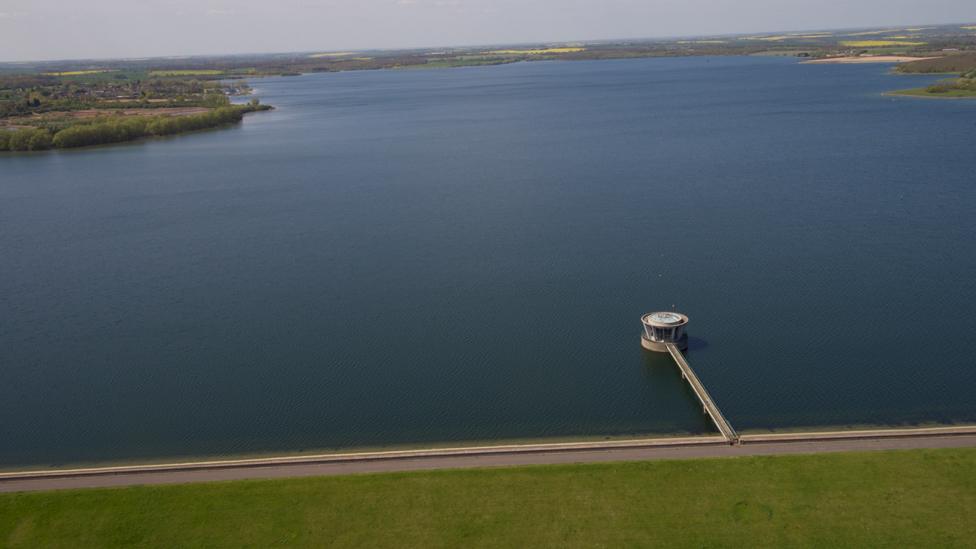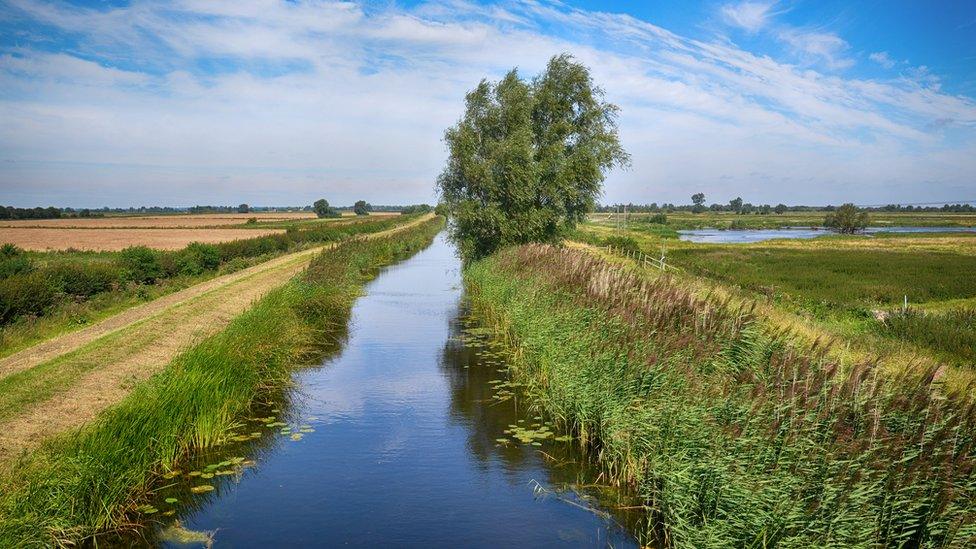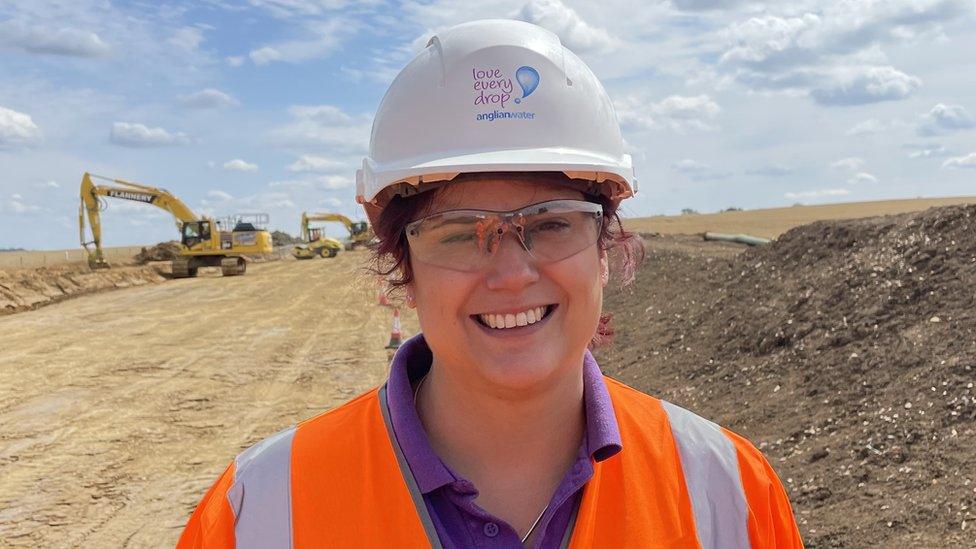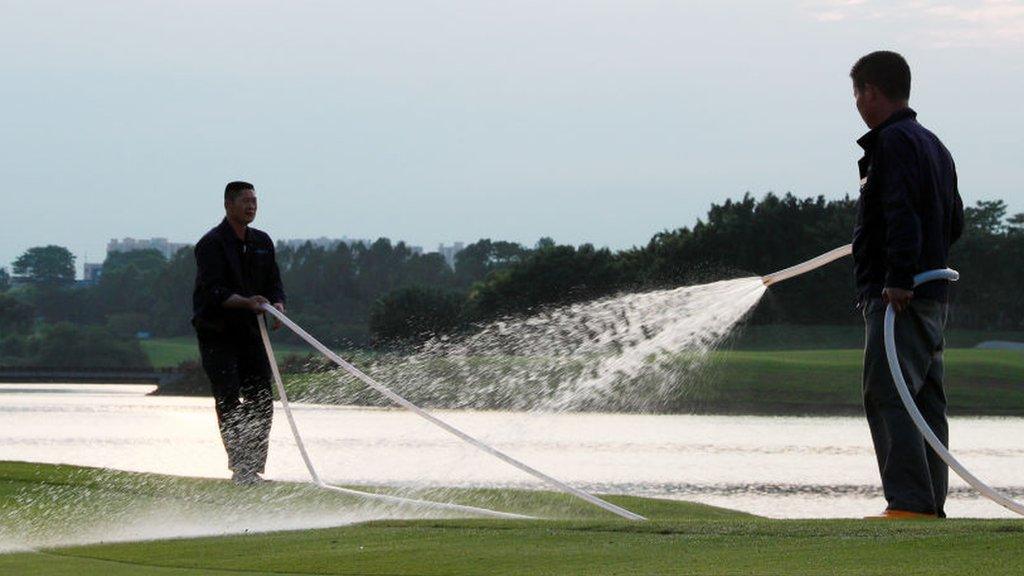East of England faces huge water shortage without action - experts
- Published
- comments

Grafham Water in Cambridgeshire is England's third largest reservoir but more is needed, says Water Resources East
The East of England faces "projected water shortages of 800 million litres" per day by 2050, according to a group looking at water security.
Water Resources East (WRE) said food safety was at risk unless scarcity issues were tackled.
WRE, set up by Anglian Water, includes various concerned bodies, and has been tasked with creating a "regional water resources plan", external for the government.
It called for £15bn to be invested before 2050 to address the issues.
The 800 million litres projection equates to a third of the region's water usage, WRE said.
"Action is needed now, otherwise increasing water scarcity will constrain agricultural production and curtail economic and housing development, as is already the case in parts of Cambridgeshire," it said.
Anglian Water, based in Cambridgeshire, recently warned that rising temperatures, low rainfall and population increase posed a "significant risk" to water supplies.

WRE was tasked with coming up with a plan to protect water supply in the region
WRE's plan focused on further improvements in leakage, reducing water demand within existing homes and buildings, and encouraging new development to be as water efficient as possible in the period to 2030.
WRE said less water should be abstracted from rivers and the ground and new building developments needed to be more water efficient.
Two new reservoirs have been proposed for near Chatteris, in the Cambridgeshire Fens, and near Sleaford in Lincolnshire, which could hold a combined 100 billion litres.
WRE also said the government needed to respond urgently to water resources plans submitted by the four water companies in the region - Anglian Water, Essex & Suffolk Water, Cambridge Water and Affinity Water.

Cambridgeshire contains some of the UK's most fertile agricultural land, and 79% of the region is farmland, Anglian Water has said
WRE suggests some farm businesses in parts of the east may have to plan for, and reduce, their abstraction of water from current sources by more than 60%.
But Monica Bijok Hone, of the Friends of the Cam, external, said the plan was too late.
"Water companies have repeatedly failed to plan for the future," she said.
"Now they argue farmers cut back their abstraction, threatening our food security, while they fail to tackle their own over abstraction, and support further growth."
WRE chairman Dr Paul Leinster said: "This is just a first, albeit important step, in the planning process.
"There is much more to do to ensure everyone has reliable access to the water they need in the east in the changing climate."
WRE is one of five regional groups across the UK tasked with looking at how to protect and preserve water sources.
The Department for Environment, Food and Rural Affairs and the Environment Agency was contacted for comment.

Follow East of England news on Facebook, external, Instagram, external and X, external. Got a story? Email eastofenglandnews@bbc.co.uk , externalor WhatsApp 0800 169 1830
- Published20 November 2023

- Published27 October 2023
- Published1 September 2023

- Published22 August 2023

- Published22 March 2023
